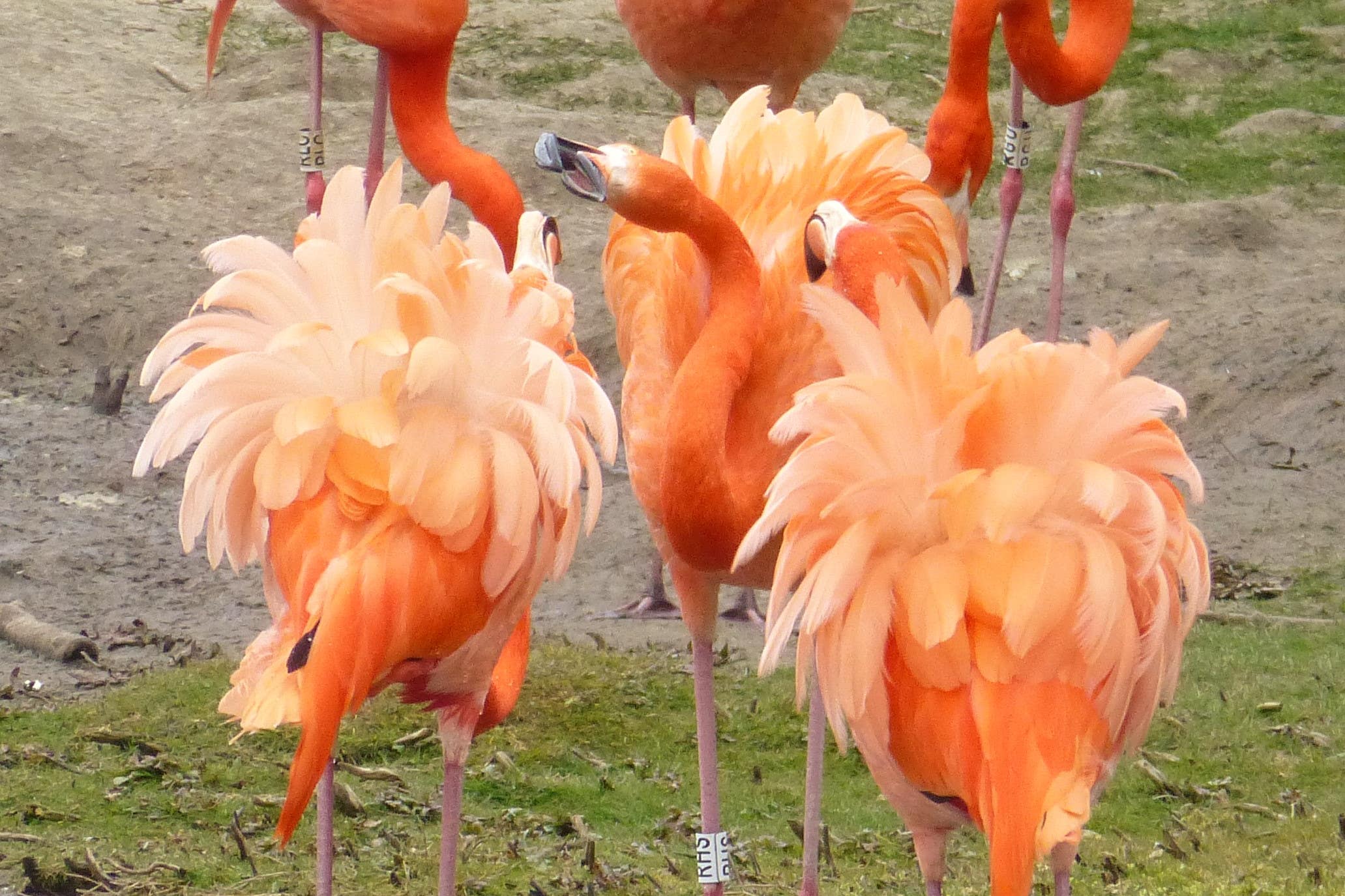Flocking together: Flamingos form cliques with like-minded friends
The research revealed the complex nature of flamingo societies and could help in the management of captive flocks.

Your support helps us to tell the story
From reproductive rights to climate change to Big Tech, The Independent is on the ground when the story is developing. Whether it's investigating the financials of Elon Musk's pro-Trump PAC or producing our latest documentary, 'The A Word', which shines a light on the American women fighting for reproductive rights, we know how important it is to parse out the facts from the messaging.
At such a critical moment in US history, we need reporters on the ground. Your donation allows us to keep sending journalists to speak to both sides of the story.
The Independent is trusted by Americans across the entire political spectrum. And unlike many other quality news outlets, we choose not to lock Americans out of our reporting and analysis with paywalls. We believe quality journalism should be available to everyone, paid for by those who can afford it.
Your support makes all the difference.When it comes to birds of a feather flocking together, flamingos are no exception.
A new study suggests the birds form cliques of like-minded individuals and tend to spend time with others whose personality is similar to their own.
Scientists at the University of Exeter and the Wildfowl & Wetlands Trust (WWT) analysed the personalities and social behaviour of Caribbean and Chilean flamingos.
The study revealed the complex nature of flamingo societies and could help in the management of captive flocks.
The answer is yes – birds of a feather flock together
Dr Paul Rose, from WWT and Exeter’s centre for research in animal behaviour, said: “Our previous research has shown that individual flamingos have particular ‘friends’ within the flock.
“In this study, we wanted to find out whether individual character traits explain why these friendships form.
“The answer is yes – birds of a feather flock together.
“For example, bolder birds had stronger, more consistent ties with other bold birds, while submissive birds tended to spend their time with fellow submissive flamingos.”
Researchers assessed the personality of the birds by measuring consistent individual differences, such as aggressiveness and willingness to explore.
Fionnuala McCully, now at the University of Liverpool, who collected data for the study during an MSc Animal Behaviour course at the University of Exeter, said: “Like humans, flamingos appear to carve out different roles in society based on their personality.
“For example, we observed groups of aggressive birds which attempt to dominate rivals and tend to get in more fights.
“Meanwhile, the role of submissive birds may be more complex than simply being lower down the pecking order – they may be using a different approach to get what they need.
“The various different personality groups provide social help to their members, for example by supporting each other in the many squabbles that take place in flamingo flocks.”
The researchers found that in the Caribbean flamingos, birds of a certain personality type had a particular role within the group overall, but this was not found in the Chilean flock.
While the reasons for this are unclear, the experts suggest it is possible that a larger study of wild birds would find such a pattern.
Dr Rose said: “Our findings need further investigation, both to help us understand the evolution of social behaviour and to improve the welfare of zoo animals.
“It is clear from this research that a flamingo’s social life is much more complicated than we first realised.”
The findings, published in the journal Scientific Reports, are based on observations of captive flamingos at WWT Slimbridge.